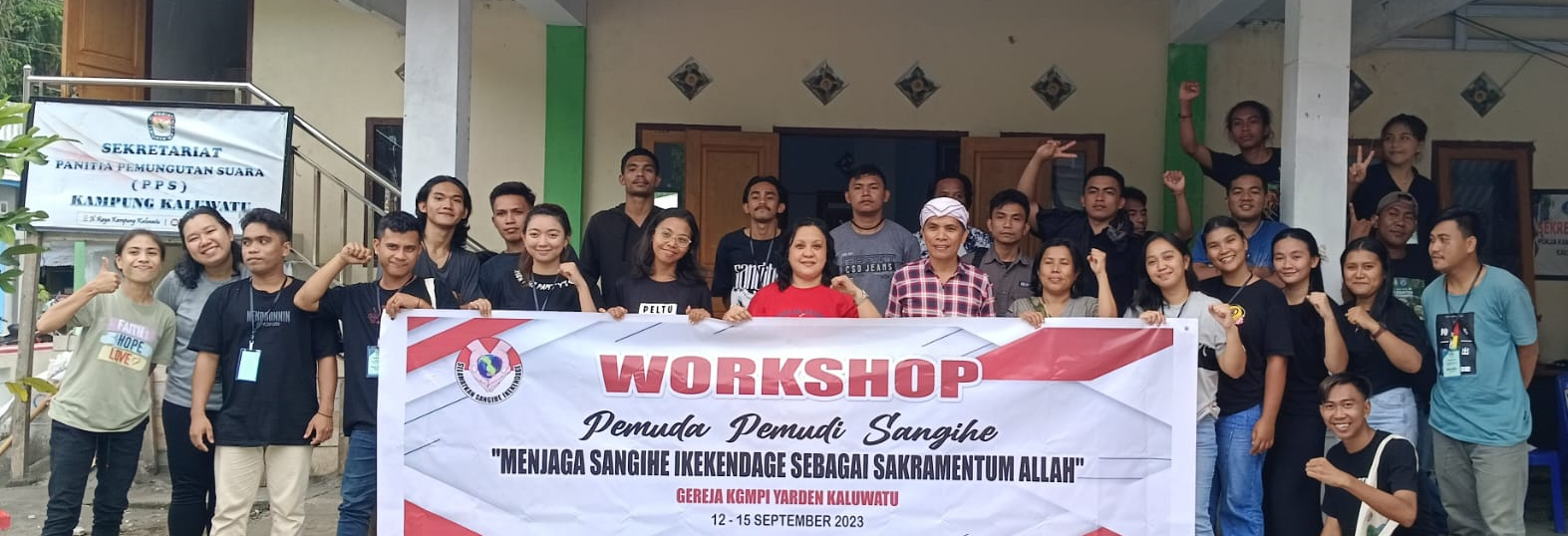
OTTAWA – This month, Indonesians from the Island of Sangihe are celebrating yet another victory in their long struggle to stop Canada’s Baru Gold from starting an industrial gold mine on their small island. With its operating permit revoked this month and the youth of Sangihe adding their voices to the opposition to Baru’s project, it remains to be seen whether Baru Gold will accept that it has neither a legal, nor a social, license to operate in Sangihe.
Permit revoked
On September 8, 2023, Indonesia’s Ministry of Energy and Mineral Resources complied with a Supreme Court ruling (No. 650) of January 12, 2023, and revoked the approval of an increase in the production operation stage of the contract of work of Baru’s subsidiary, Tambang Mas Sangihe (TMS).1 The revocation sets out that Baru Gold’s subsidiary is “prohibited from carrying out production operation activities which include construction, mining, processing and/or refining, as well as transportation and sales.”2
The Supreme Court ruling earlier this year and permit revocation this month, are the latest victories of Sangihe Islanders in their long-drawn battle to stop large-scale industrial gold mining by Canadian company Baru Gold from starting on their small island. Sangihe Island, at 736 km2, is classified under Indonesian law as a small island and, as such, is off limits to mineral exploitation, which is prohibited on islands of less than 2,000 km2. Sangihe Islanders have taken their concerns to the Indonesian courts,3 and expressed their opposition to Baru’s proposed mine in peaceful protests on the island, in the nation’s capital, Jakarta, and at the Canadian Embassy.
Youth speak out
Sangihe women led the way in an effort to stop the gold project through the courts.4 Now the youth are speaking out to reject the proposed mine.5 In their joint statement read out on September 15, Sangihe youth state that “It is not permissible for anyone, whether Sangihe people or outsiders, to destroy the nature of Sangihe Island, destroy civilization, social life, values, customs that have been inherited by our ancestors only for the sake of enriching themselves or their groups.” They further “promise to protect the island of Sangihe in any way possible for a better life for our children and grandchildren and to maintain the integrity of the Republic of Indonesia from the Northern Border of Indonesia.”6
On September 20, Baru Gold announced that it and its subsidiary TMS have “completed applying and submitting all necessary documents to request a new upgrade to Production Operation Status to the Ministry of Energy and Mineral Resources of the Republic of Indonesia.” The local Save Sangihe Island organization has already indicated that should Baru Gold seek to obtain a new license, the islanders would once again take legal action to protect their island from mining.
“No matter how often Baru Gold reapplies for a license to mine, Sangihe Island will not increase in size so it remains protected from mineral exploitation under the Indonesian law that protects small islands,” says Catherine Coumans, Asia-Pacific Program Coordinator at MiningWatch Canada. “But equally important, it should finally be clear to Baru Gold that it has never achieved a social license to operate from the people of Sangihe.”
For more information contact:
Catherine Coumans, Asia-Pacific Program Coordinator, catherine@miningwatch.ca
- 30 -
1 Baru Gold Corp. (previous to 2020 East Asia Minerals) is developing the mine on Sangihe Island through its wholly-owned subsidiary Sangihe Gold Corporation, which owns 70% of PT Tambang Mas Sangihe (TMS).
2 Translation from Indonesian by DeepL.
3 MiningWatch Canada has reported on court decisions in favour of Sangihe islanders in previous releases on June 10 and June 15, 2022 and March 21, 2023.
4 "Indonesian Women Win Legal Victory to Protect Small Island Home From Canadian Baru Gold." Available here.
5 The declaration by the Sangihe Youth is read from Minute 60:02. See more here.
6 Quotes from “Sangihe youth declaration to face mining threat." Translated by DeepL.